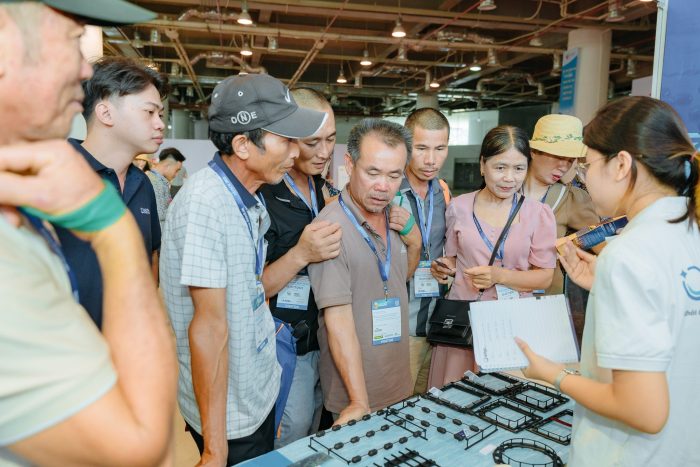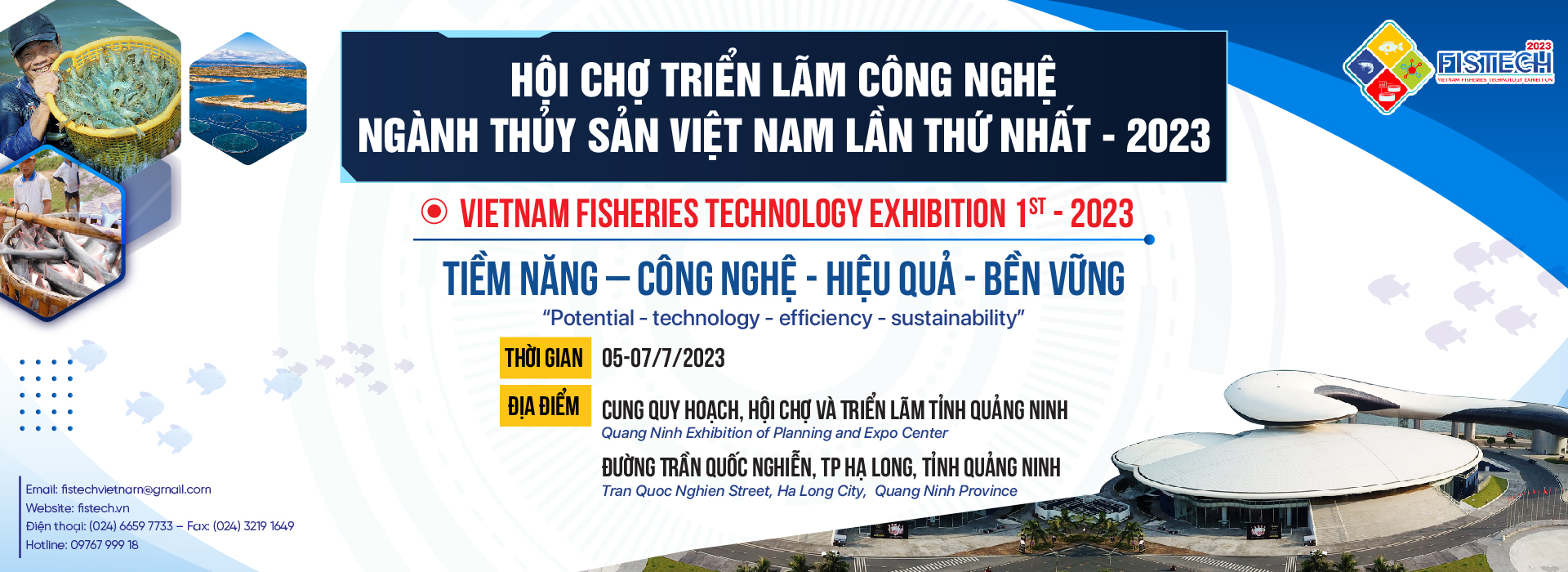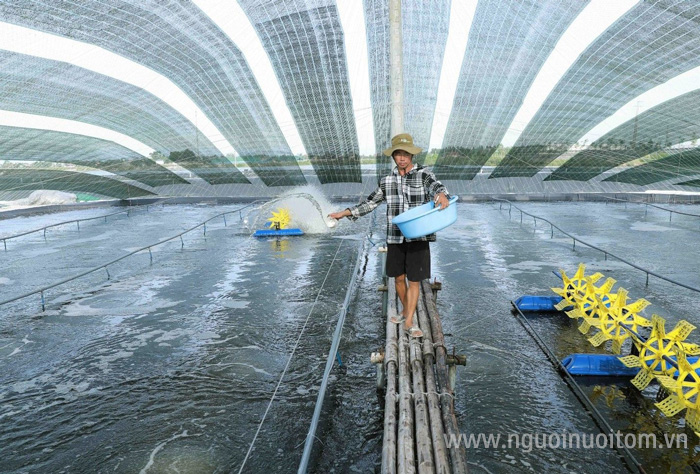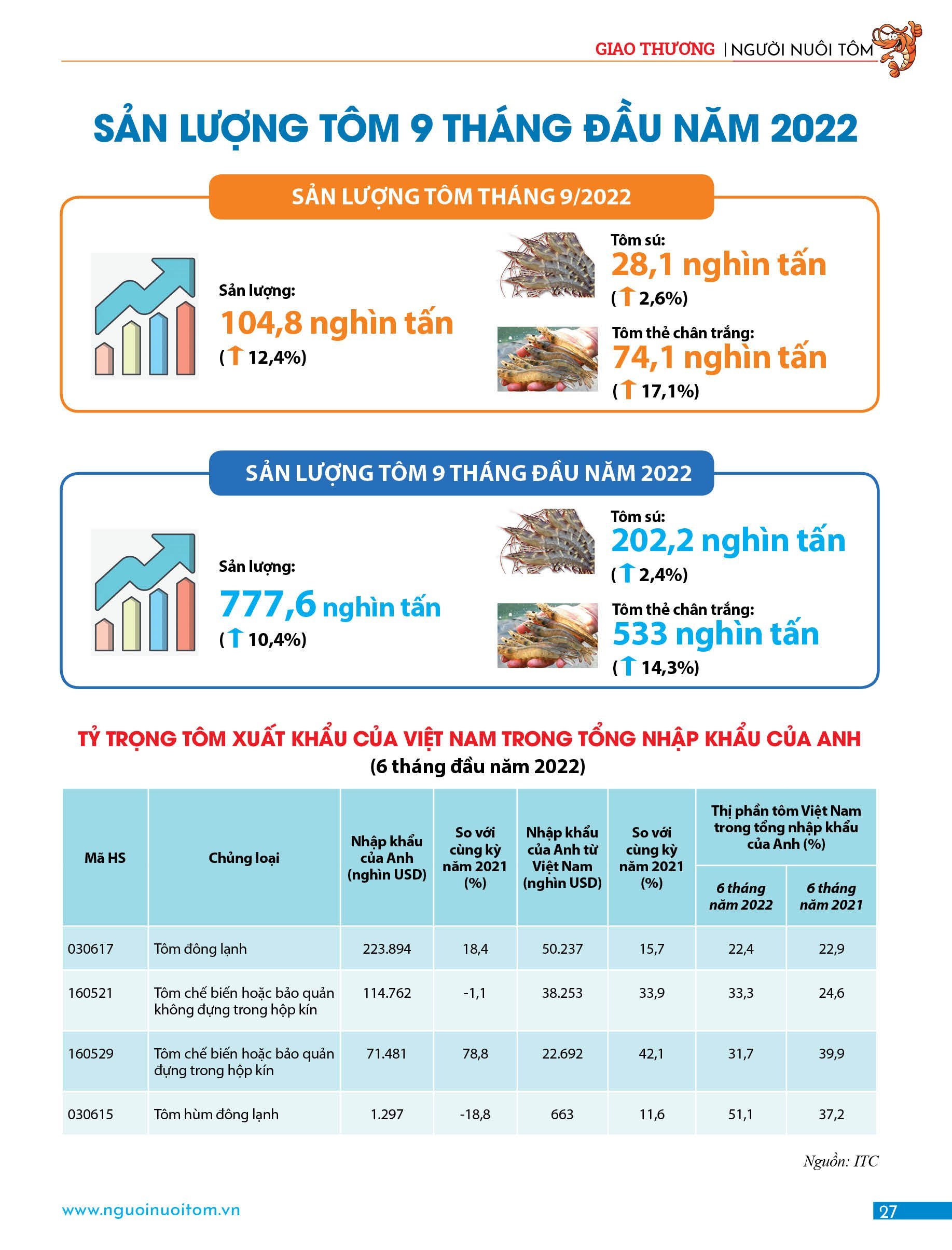Freshwater fish industry in the North: Disease management and development potential
[Shrimp Breeders] – On the morning of November 27, 2021, Center for Breeding Technology Consulting and Transfer – CAAT (Vietnam Livestock Association), Faculty of Fisheries (Vietnam Academy of Agriculture) and Joint Stock Company Digital Agriculture Communication and Services has successfully coordinated to organize a webinar with the theme “Dangerous emerging diseases in farmed fish and how to prevent them”.
The conference aims to share and provide fish farmers with information about dangerous emerging diseases on fish as well as ways to prevent and treat diseases from aquatic experts working at units and businesses.
Workshop “Dangerous emerging diseases in farmed fish and how to prevent” was accompanied by sponsors: Viet Nhat Group – Gold sponsor; and Thai My Company – Silver sponsor.
The seminar attracted more than 200 guests who are scientists, managers, aqua feed production enterprises/ aquatic medicine enterprises/ biological products; farms and people interested in the fisheries industry in general and fish farming in particular.
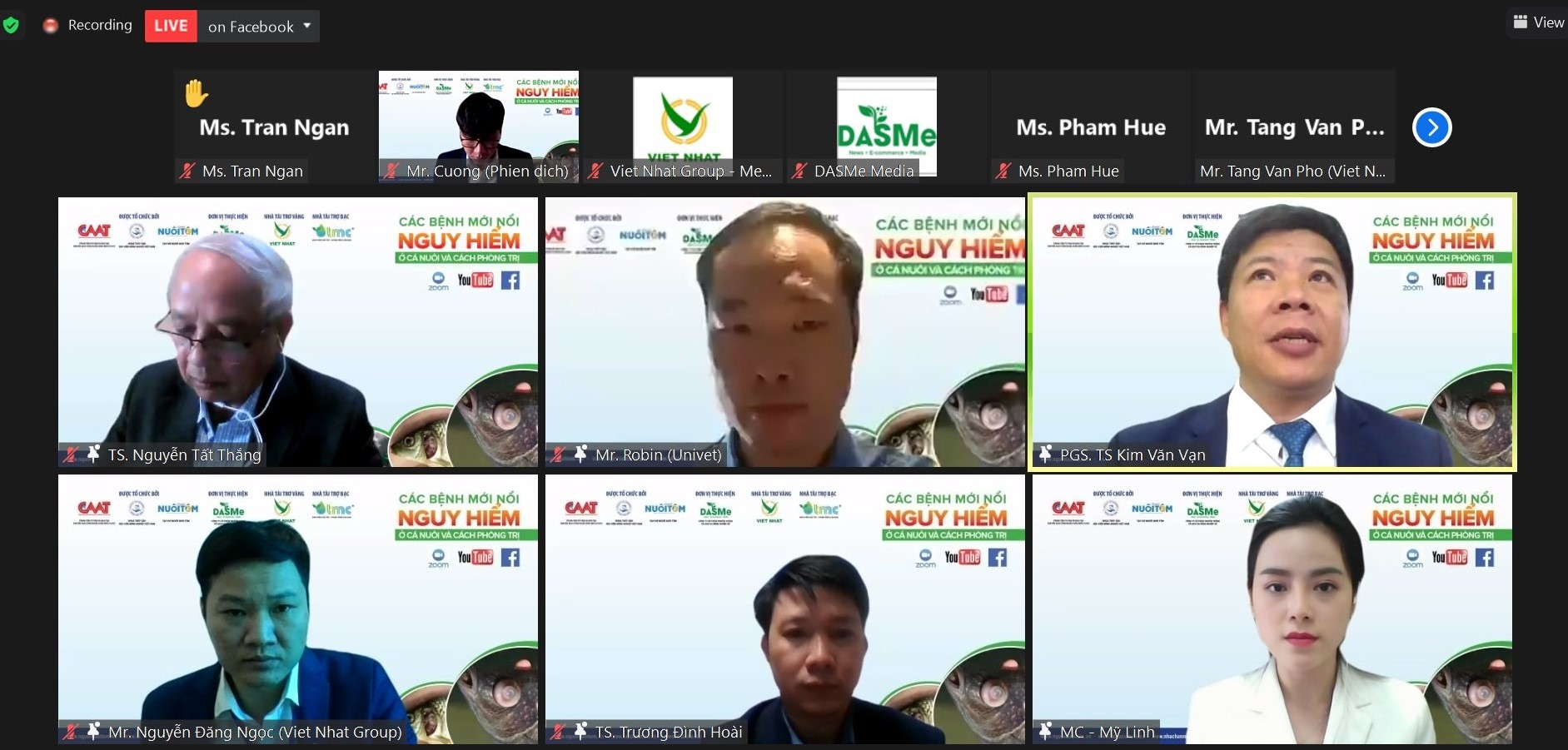
Delegates and speakers attending the Zoom webinar (Screenshot)
According to Dr. Nguyen Tat Thang, General Secretary of the Vietnam Livestock Association and Director of the CAAT Center, the North of our country has great potential for aquaculture development with a water surface area of nearly 400,000 hectares. Fish farming in the North has been on the rise, contributing to creating jobs, developing family and local economies, and stabilizing social security. Many localities have built specialized farming areas with the main farming species such as: tilapia, carp, grass carp, black carp, sea bass, trout… with many forms of culture in ponds and cages. raft, tank.
However, our country’s fish farming is not considered worthy of its potential, there are still many limitations such as: fragmented livestock scale, limited breeding techniques, increasingly polluted environment, epidemic diseases. more and more diseases. In particular, more and more dangerous new diseases appear without any preventive measures, causing great losses to fish farmers.
At the seminar, experts from the Department of Fisheries, Vietnam Academy of Agriculture gave key presentations on dangerous emerging diseases in freshwater fish, typically black carp and carp. lentil fish.
Assoc. Dr. Kim Van Van, Head of Fisheries Faculty of Vietnam National Academy of Agriculture, shared a post with the topic “Diseases in black carp and treatment measures”. According to Assoc. According to Dr. Kim Van Van, industrial black carp is a fairly common cultured object in Vietnam, with research in the past 10 years, a research team of the Faculty of Fisheries, Vietnam Academy of Agriculture found that when industrially farming , Black carp often suffer from a number of dangerous diseases, and most typically in the last two years, in this cultured species, there has been an emerging disease causing great loss to farmers caused by Streptococcus, also known as Streptococcus. called pink eye disease.
Assoc. Dr. Kim Van Van, Head of Fisheries Faculty of Vietnam National Academy of Agriculture, shared a post with the topic “Diseases in black carp and treatment measures”. According to Assoc. According to Dr. Kim Van Van, industrial black carp is a fairly common cultured object in Vietnam, with research in the past 10 years, a research team of the Faculty of Fisheries, Vietnam Academy of Agriculture found that when industrially farming , Black carp often suffer from a number of dangerous diseases, and most typically in the last two years, in this cultured species, there has been an emerging disease causing great loss to farmers caused by Streptococcus, also known as Streptococcus. called pink eye disease.
“Black carp is considered as a aquaculture product with economic value for the Northern region in particular (mostly concentrated in Hai Phong and Nam Dinh provinces) and is now also being consumed by consumers in the South. welcome” Assoc. Dr. Kim Van Van commented.
Following the presentation circuit, Dr. Truong Dinh Hoai, Deputy Head of the Department of Fisheries, Head of the Department of Environment and Aquatic Diseases, Vietnam Academy of Agriculture in a presentation on some emerging diseases that are dangerous in cultured salmonids and how to prevent them. , said: “Catfish, or catfish, is considered as one of the strong aquaculture species of our country’s seafood industry. Salmon has high nutritional value and is popular with consumers, so the farming scale is expanding, bringing high economic value to farmers. With regard to salmon, there are a number of common diseases such as diseases related to parasites, diseases related to muscle mass, etc., which are causing danger and damage to farmers.”
Dr. Truong Dinh Hoai said that, in recent years, the Faculty of Fisheries of Vietnam Academy of Agriculture has developed diagnostic procedures, activities related to consulting, environmental management and aquatic diseases for applications. businesses, especially those related to the seafood industry in the northern provinces.
In addition to scientific reports on dangerous emerging diseases in freshwater cultured fish, the conference created an opportunity for experts, scientists, and aqua feed manufacturers to exchange and share information. information on advanced aqua feed processing technology, bringing high efficiency to farmers.
The Gold Sponsor of the Workshop, Viet Nhat Group shared about its modern, productive and quality aqua feed production line. Viet Nhat Group, formerly known as Viet Nhat Nutrition Joint Stock Company, was established in 2014. With a period of nearly a decade of development, currently Viet Nhat Group is doing business in 5 fields, with a large scale. more than 1,000 employees. Currently, Viet Nhat Group owns 2 feed mills with production lines with a total capacity of up to 400,000 tons/year; 01 manufacturing and trading company in the field of veterinary drugs; high-class resorts and a series of valuable real estate.
Last October, 2021, Viet Nhat Group held the inauguration ceremony of the Viet Nhat livestock, poultry and aquaculture feed factory. This is the second factory of Viet Nhat Group, with a total capacity of 270,000 tons/year, of which 200,000 tons of feed for cattle and poultry and 70,000 tons of aqua feed; total investment capital is over 270 billion VND. In particular, Viet Nhat has launched a line of high-class seafood products, shrimp and seafood products under the APEX FISH brand.

Some high-end aqua feed products of Viet Nhat Group
“In 2021, Viet Nhat Group signed a comprehensive cooperation agreement with Nutriera Group – a group with leading experience in seafood technology in China. The two sides will work together to build a set of high-quality, cost-effective products as well as provide solutions for pond management, safe and sustainable aquatic health care,” said Nguyen Dang Ngoc. , Director of Nutrition Viet Nhat Group shared at the seminar. “Viet Nhat Group is aiming to become the leading brand in the supply chain of quality and effective products in the fields of animal feed, aqua feed, veterinary medicine and strong services. We are committed to constantly creating high-quality and high-value products for customers, contributing to the sustainable development of society.”
Next, the expert from Nutriera, Mr. Robin, Technical Advisor of Univet International Joint Stock Company, shared a post on the topic of pond quality management, which is a very practical and useful presentation. useful, many people are interested.
At the end of the program, there is an exchange, sharing experiences and answering questions between experts, businesses and aquaculture farmers. The questions posed by the attendees were realistic and were directly shared and answered by experts and business representatives. At the end of the webinar, representatives of experts, businesses and attendees all expressed their satisfaction with the values received from the seminar, as well as highly appreciated the contents and solutions provided by the experts. speakers shared during the conference.
PHAM HUE

